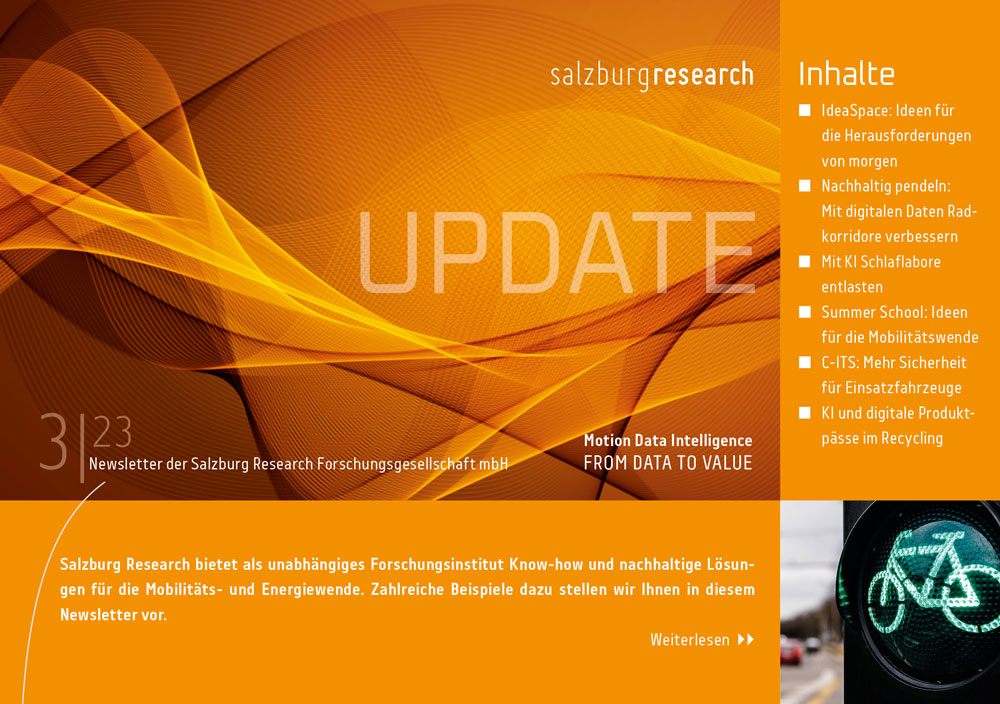
Industry 4.0: Recommendations for Action for Companies
Industry 4.0 is increasingly becoming the determining standard for the future viability of companies. The increasing digital transformation is often described as a “fourth industrial revolution” in German-speaking countries. The study “Digital Transformation through Industry 4.0 and new Business Models” presents challenges and success models in Austria. 68 well-known companies were interviewed in detail. The result is a comprehensive and up-to-date picture of Industry 4.0 in Austria.
The results are intended to contribute to a better understanding of digital transformation ‘industry 4.0’ in Austria, and to help companies make decisions about their I40 strategy. “Many companies regard digital transformation as a purely evolutionary process in the sense of logical technological progress, which they manage as part of the day-to-day business. We caution against such a shortened assessment, “says Markus Lassnig, director of studies and innovation researcher at Salzburg Research. “In the study we analyse challenges and solutions for promising digital strategies. We show the urgency of the issue, call for the attention of top management, and recommend embedding all activities into a comprehensive digitalisation strategy for each company.”
7 Recommendations for Action for Companies
In the study, seven core recommendations for companies based on secondary research plus the 68 qualitative company interviews were identified and validated by external experts:
- Integrate digital transformation into company strategy:
Digital transformation should not only be managed within the framework of the day-to-day business but should be systematically integrated into the company’s strategy. The pioneers among the companies are already doing this, but the majority of Austrian companies have seen Industry 4.0 primarily as an operational topic – also based on the shortened view that digital transformation is a purely evolutionary process without disruptive potential. The recommended integration of digital transformation into the company strategy, on the other hand, reduces the risk of operational steps in the wrong direction, facilitates clear and transparent communication with the employees, and makes it clear that the top management is anchored. - Stakeholders in the value-added network are able to vote for technical content:
Companies should coordinate as early as possible and proactively with the relevant stakeholders in their value-added network, so that their own company can influence the establishment of technical standards as effectively as possible and in any case do not miss any development in its value-added network. Allowing the activities to other players is the risk of being substituted in the value-added network by other players. - Ensure IT and data security proactively:
A proactive strategy to ensure their own IT and data security is a must for companies who want to secure their place in successful value-added networks. The importance of IT and data security continues to grow in times of the Industrial Internet of Things and has not only technical but also direct competitive effects. Finally, data security is not an exclusively internal business issue, but must also be secured to suppliers and customers. In-depth collaborations are only entered into with partners who have completed their homework in IT and data security – thus the topic decides on the place of a company in the value-added network. - Develop your own data strategy:
A lot of companies lack their own knowledge to create their own data strategy. In doing so, the added value of data analyses up to Big Data Analytics can only be realized with a clear data strategy. Each company should design and track such a data strategy for itself and, if necessary, coordinate it with partners in the value-added network. - Active communication with employees:
Every company must be aware of the fact that the issue of industry 4.0 creates uncertainty and anxiety on the part of the employees. This can best be countered with transparency and active communication. Employees must be “taken” in industry 4.0 projects, then they can also make their requirements meaningful and contribute to the success of digital transformation. - Further training for employees:
Companies should become active as far as possible in order to support their employees in a well-founded education and training in topics relevant to industry 4.0. Demonstration companies are cooperating with educational institutions in order to make existing and future employees fit for industry 4.0 in the form of curricula and courses tailored to the economy as far as possible. - New Business Models as Intra Entrepreneurship:
A new disruptive business model cannot simply be built up within the old business model due to target conflicts. Instead, companies should better separate business units form the core business, concentrating only on the growth opportunities of the disruptive business, such as a start-up within an established company.
Study
The study “Digital Transformation through Industry 4.0 and New Business Models” was prepared by Salzburg Research Forschungsgesellschaft mbH, Syngroup Management Consulting GmbH and Evolaris next level GmbH on behalf of the Federal Ministry of Transport, Innovation and Technology (BMVIT). Supported by the Austrain Research Promotion Agency (FFG) in the “Production of the Future” program.
All four study reports are available for free download (in German): https://i40transform.salzburgresearch.at/
Press release (in German): Studie Industrie 4.0 in Österreich: 7 Handlungsempfehlungen für Unternehmen







